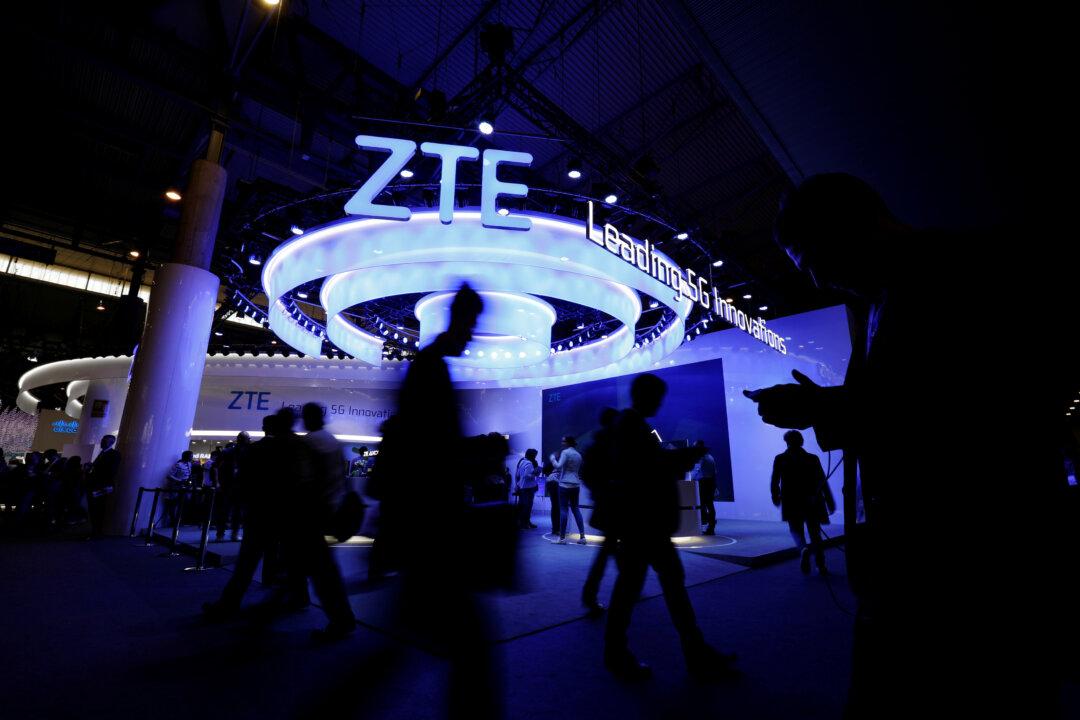HONG KONG—China’s ZTE Corp made a net profit of 276 million yuan in the fourth-quarter as it recovered from costly U.S. sanctions which dragged it to an overall 2018 loss of 7.0 billion yuan ($1 billion).
The world’s fourth-largest telecommunications equipment maker by market share was forced to stop most business between April and July last year due to U.S. sanctions. It paid $1.4 billion to lift these and reported its worst half-year loss of 7.8 billion yuan in August.





